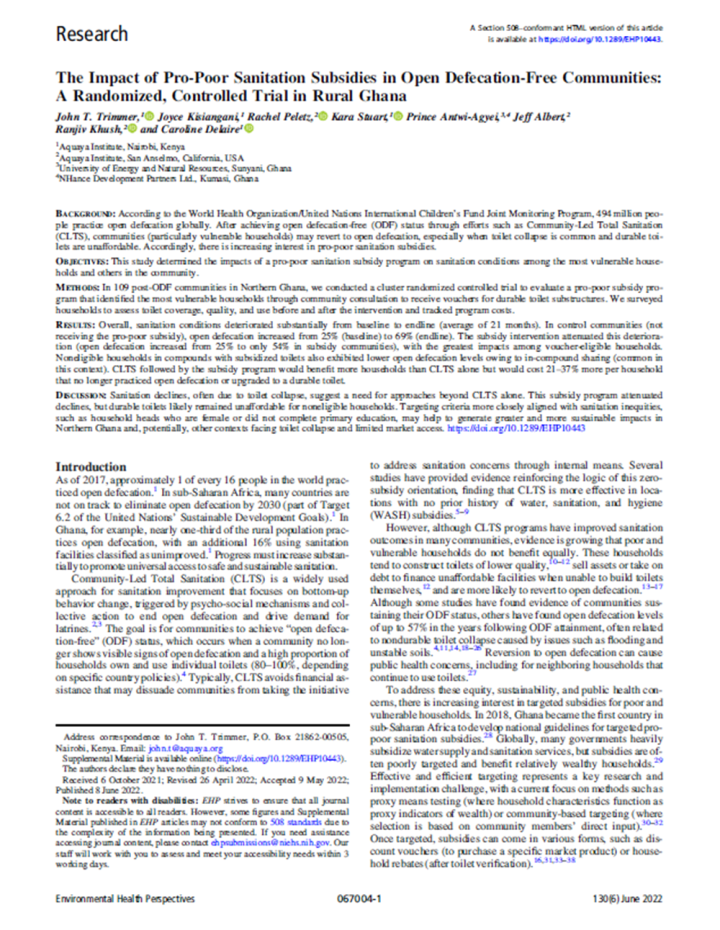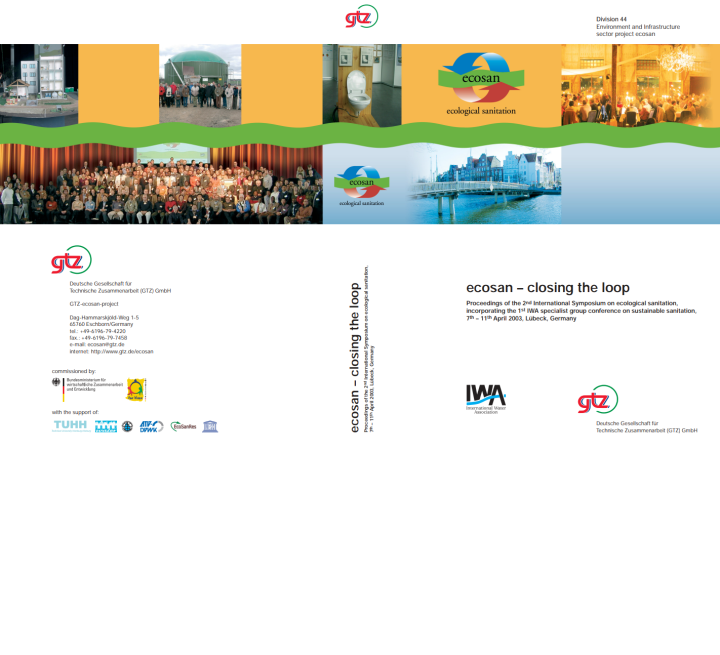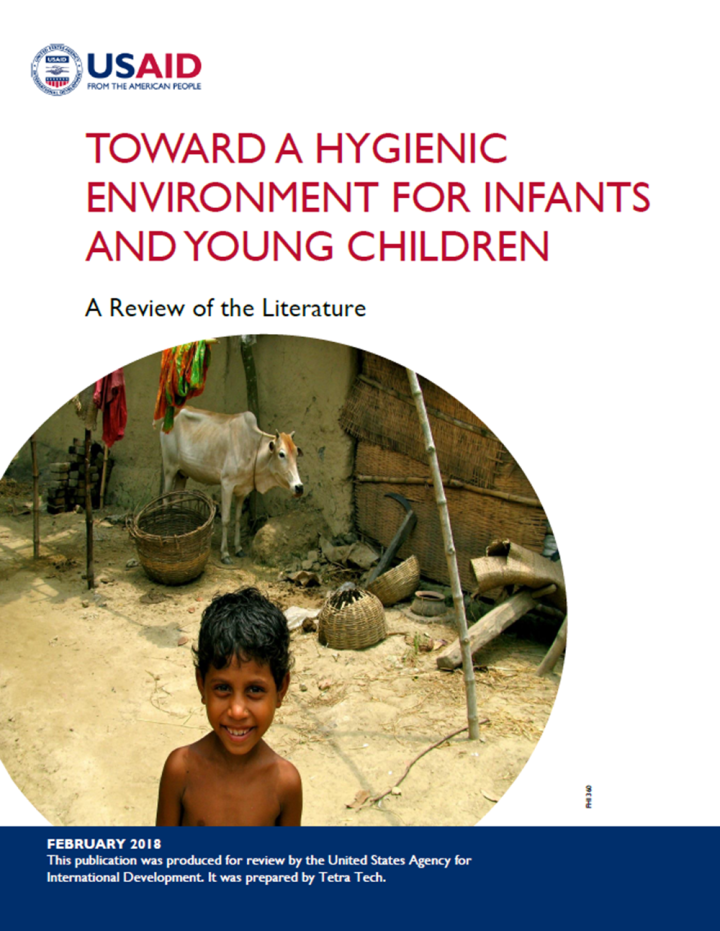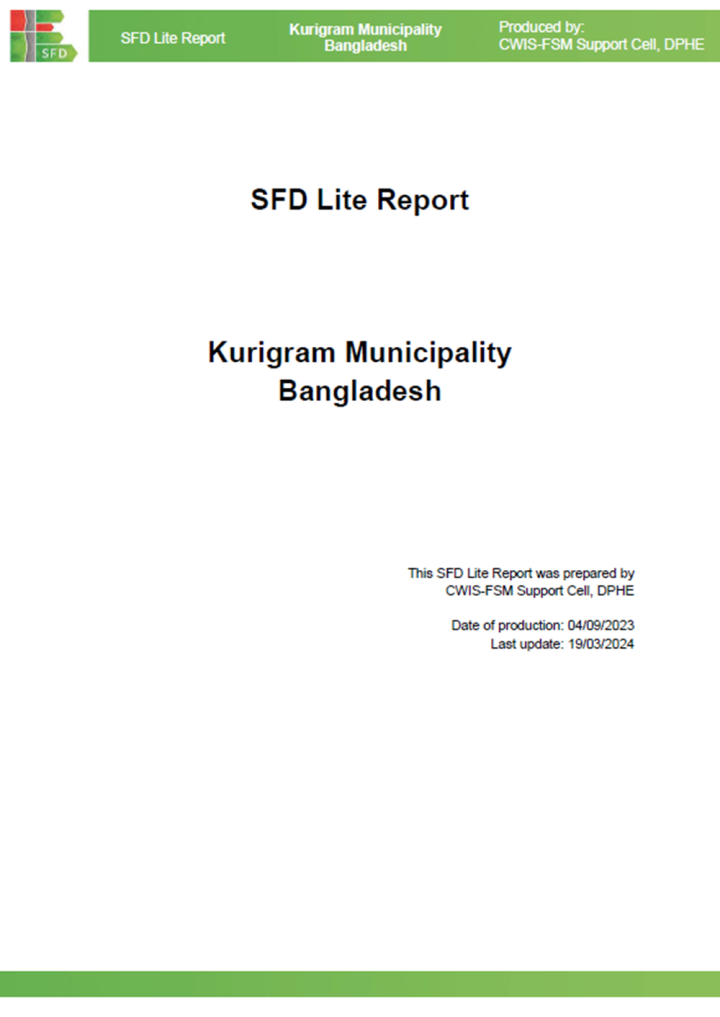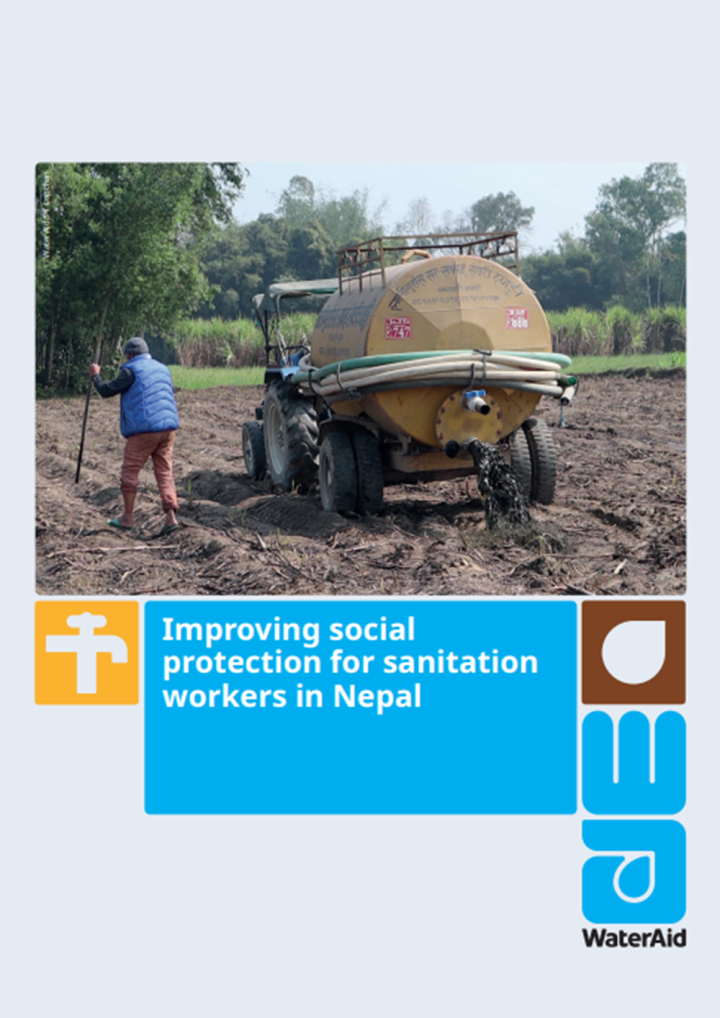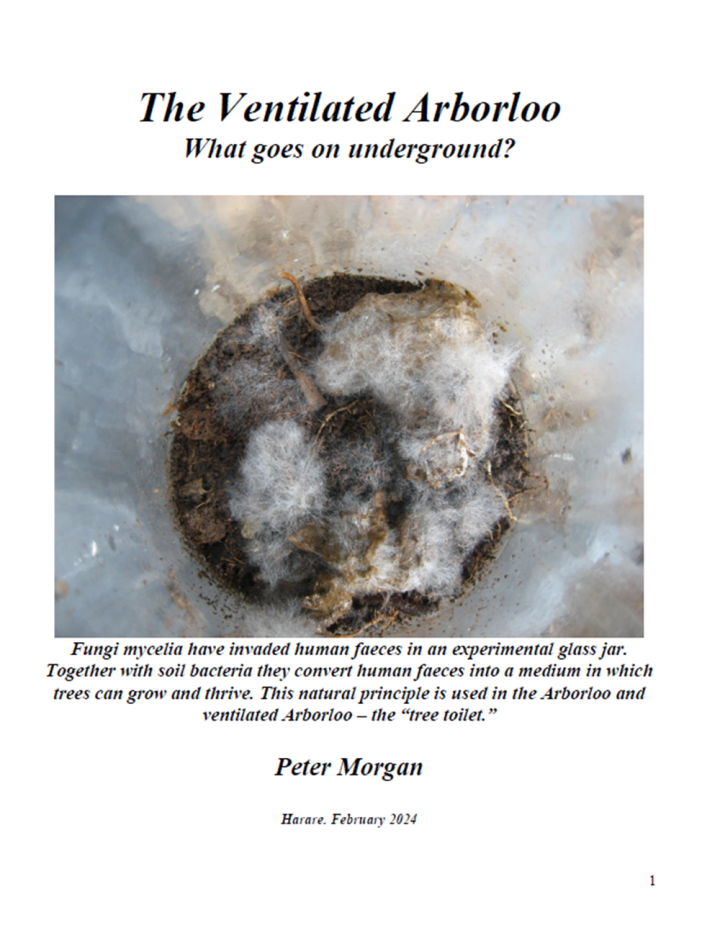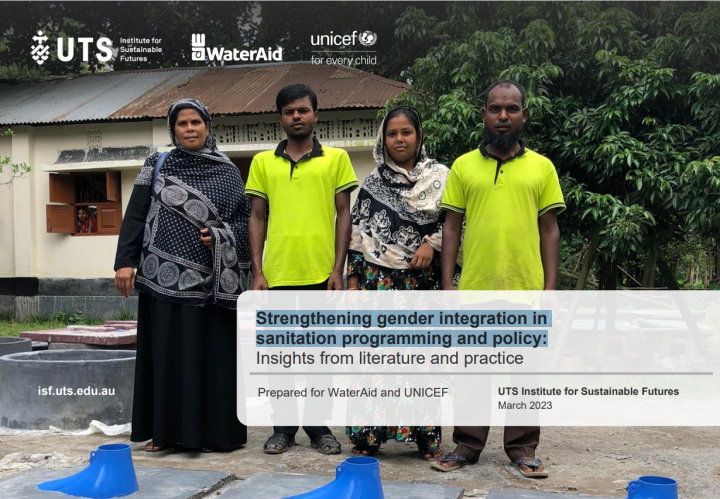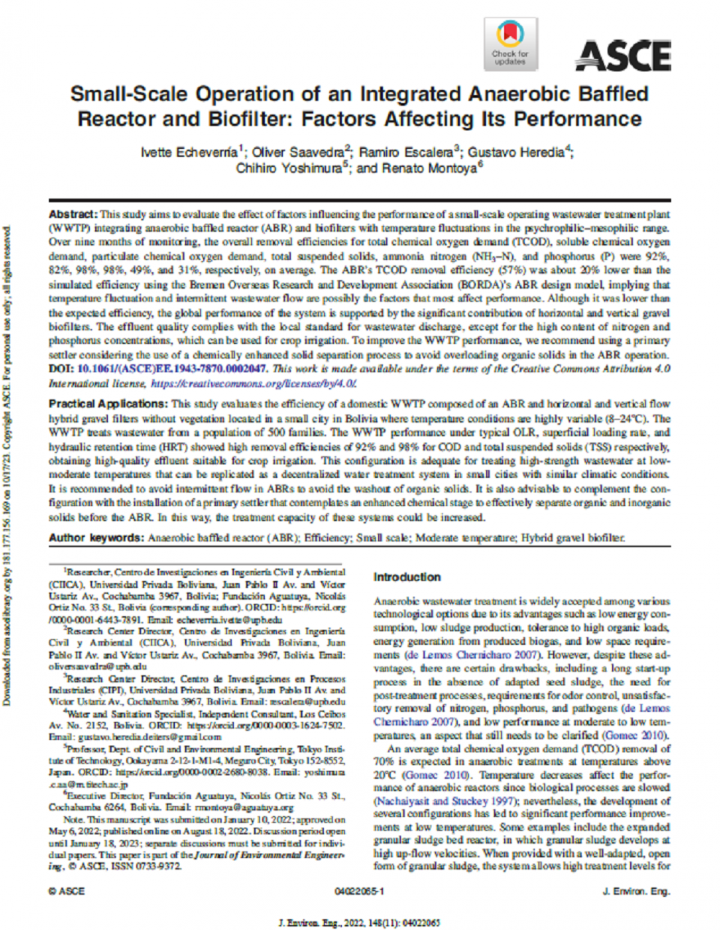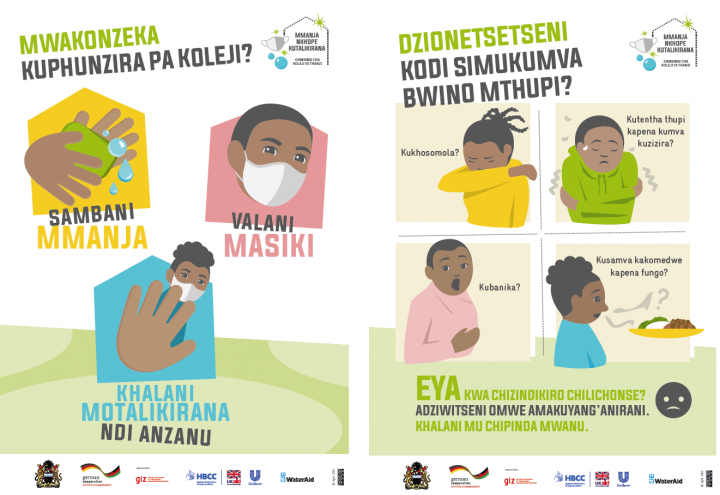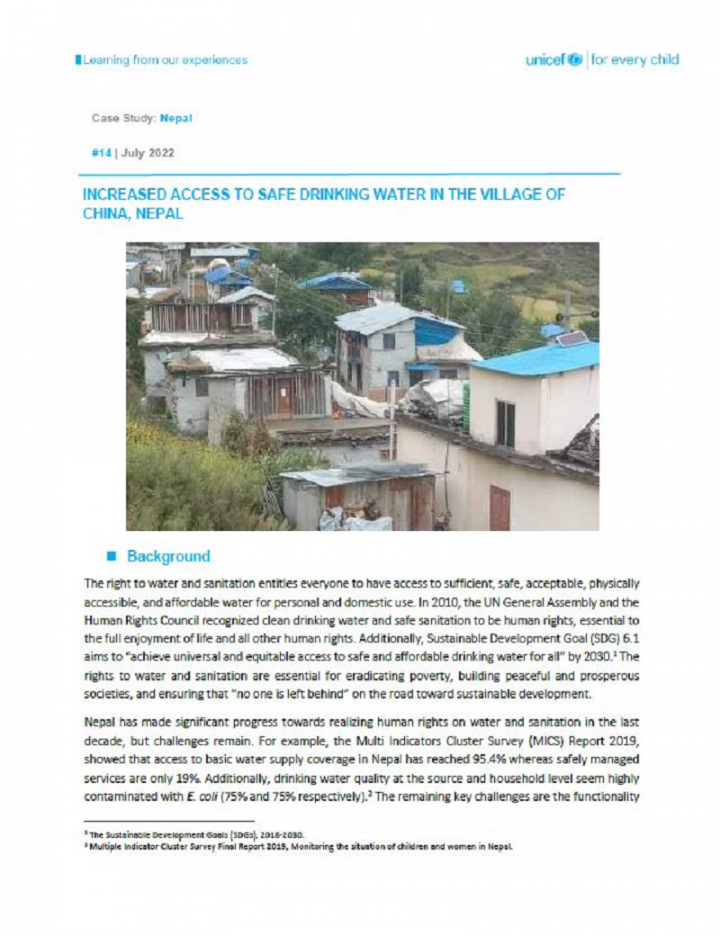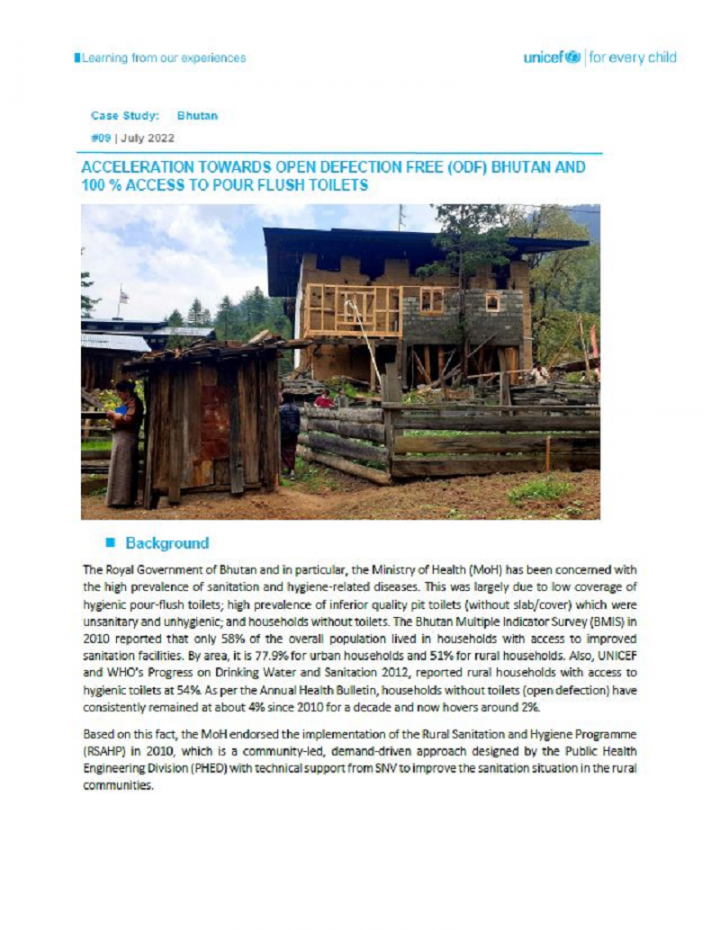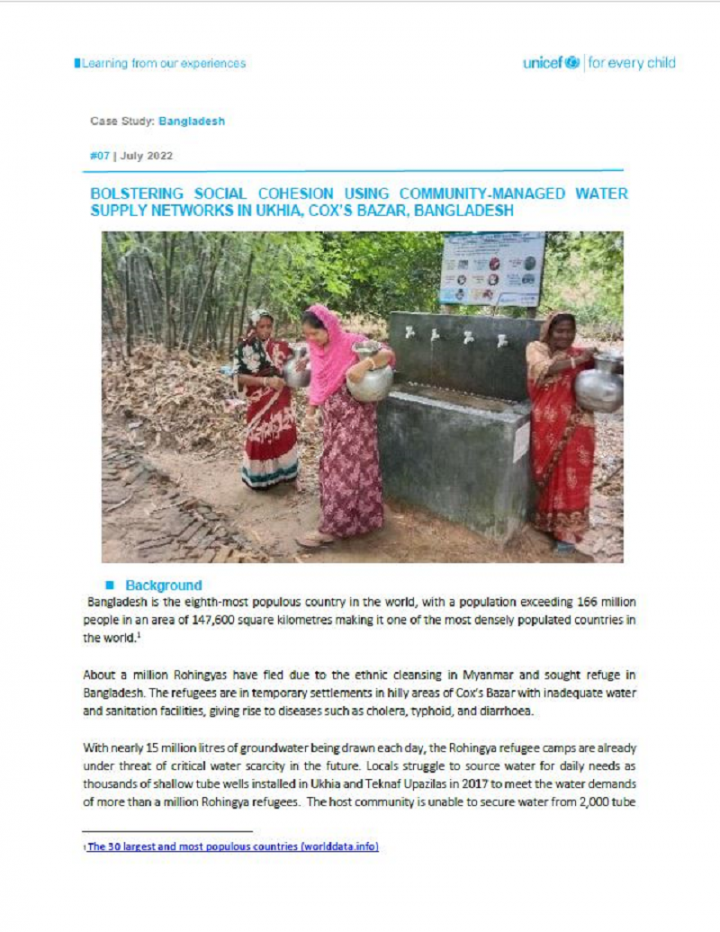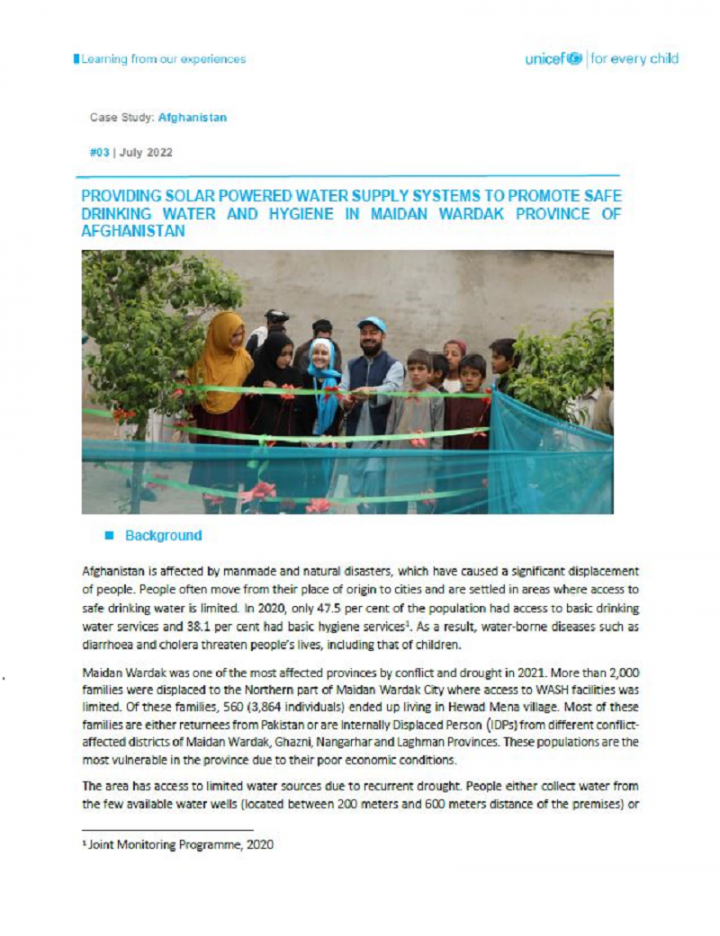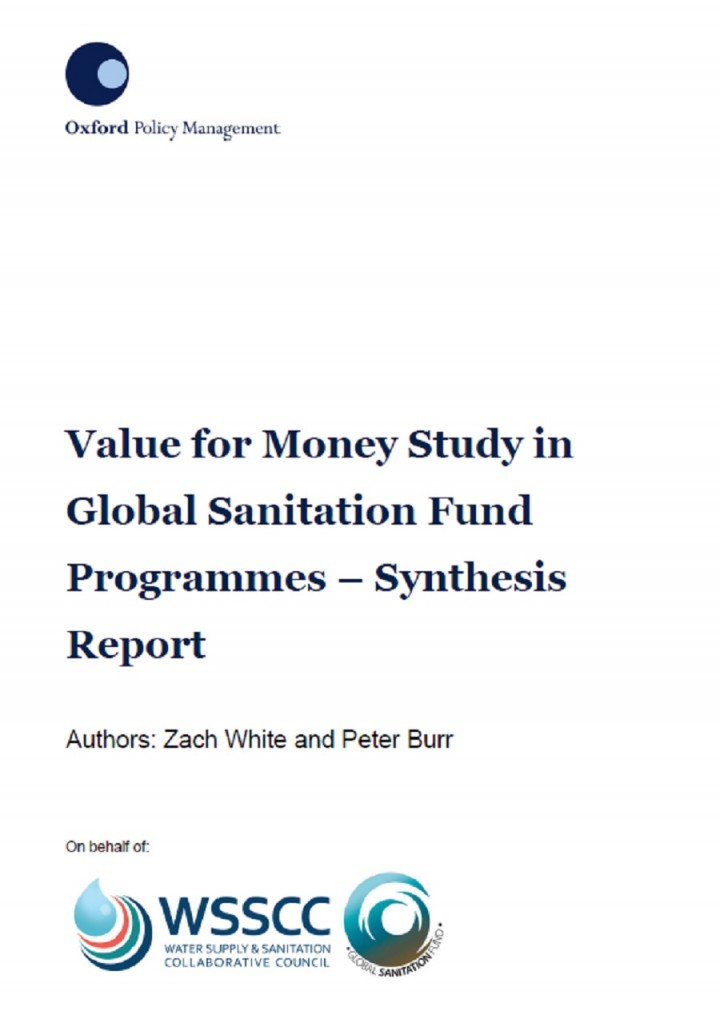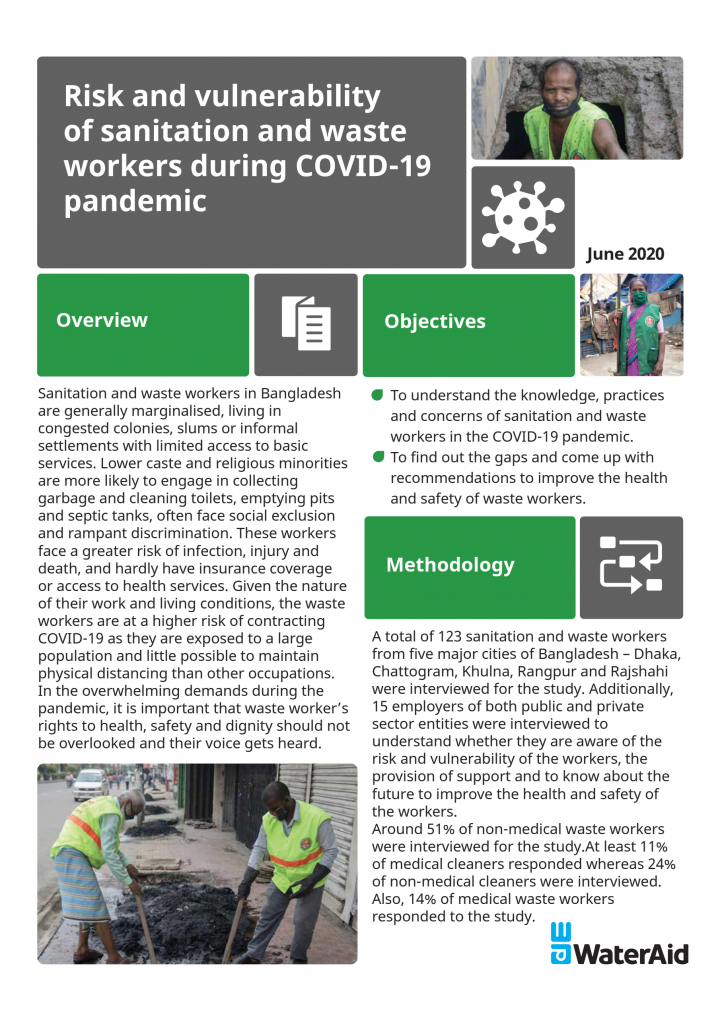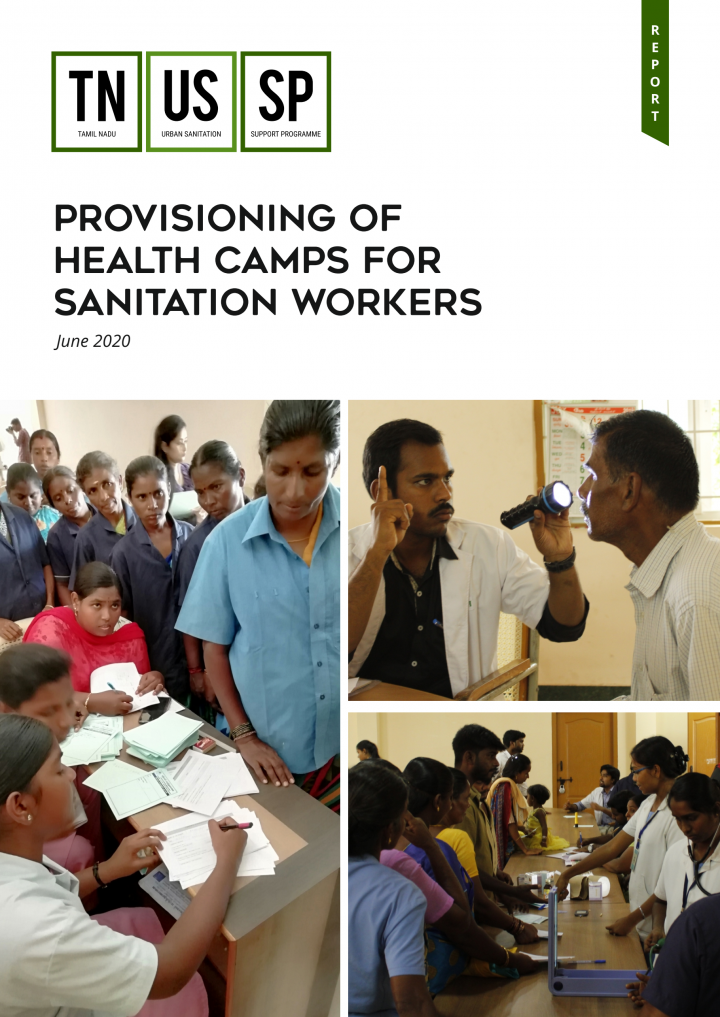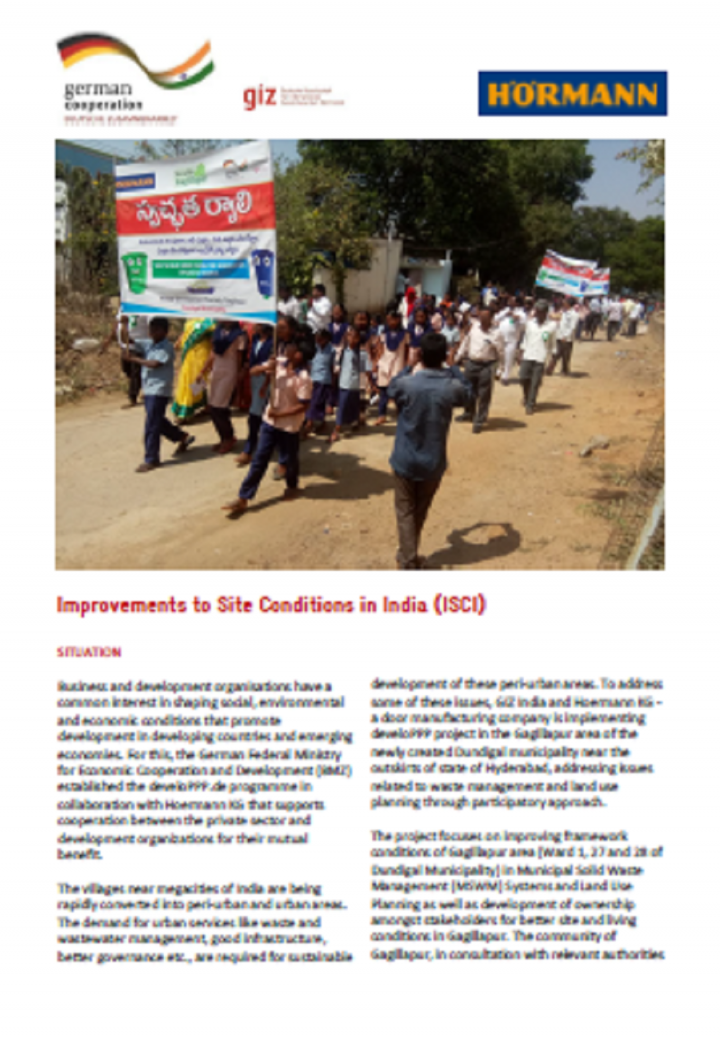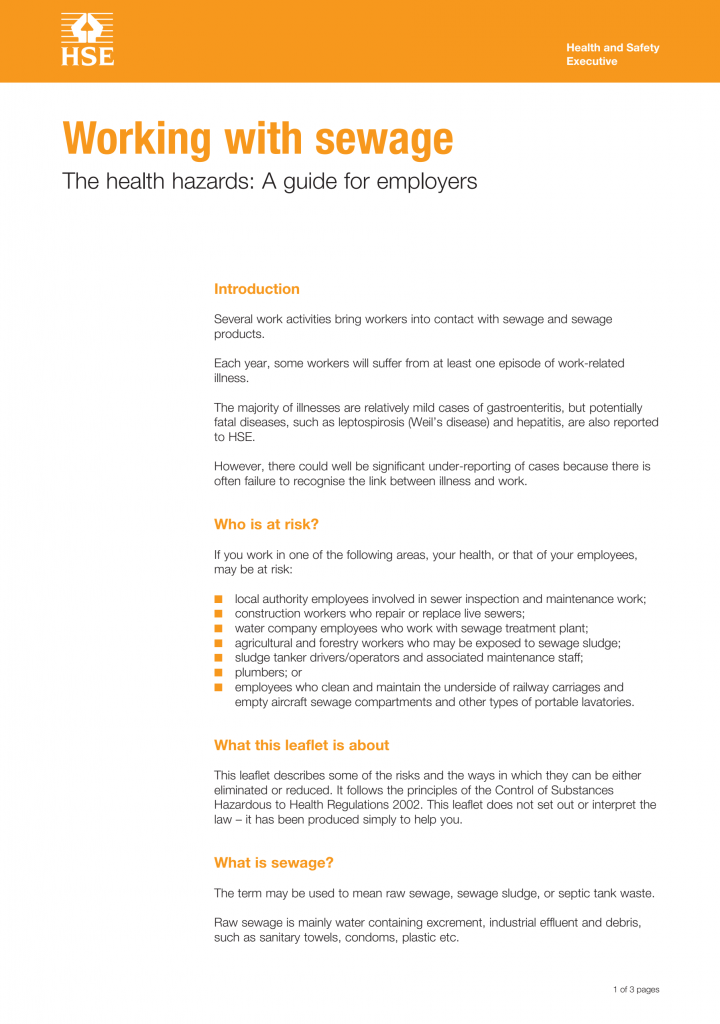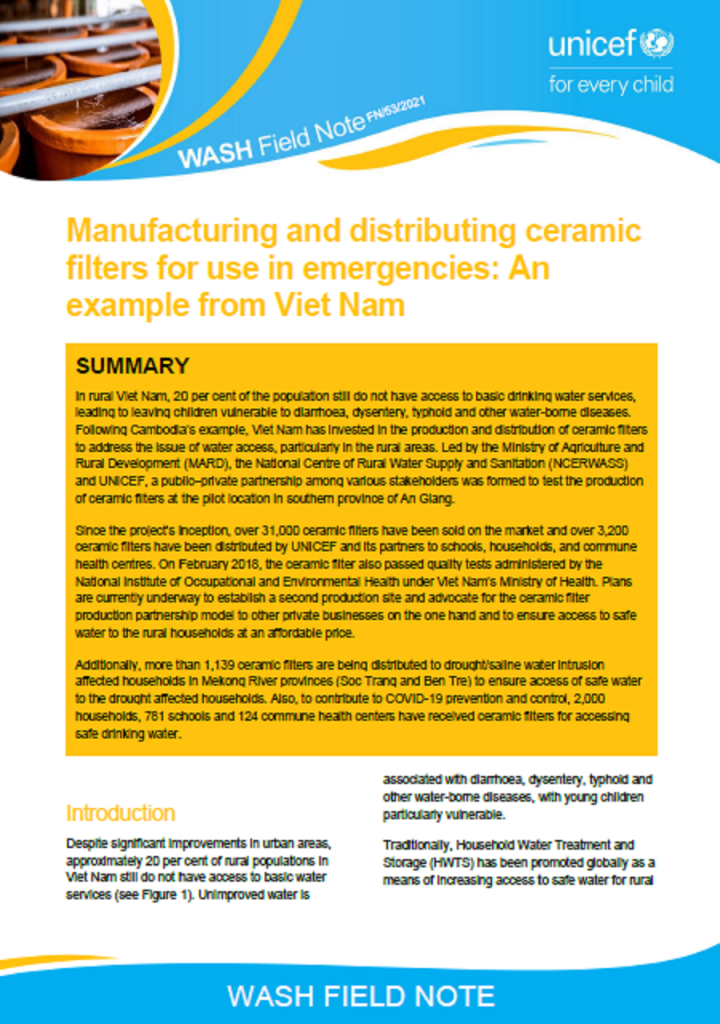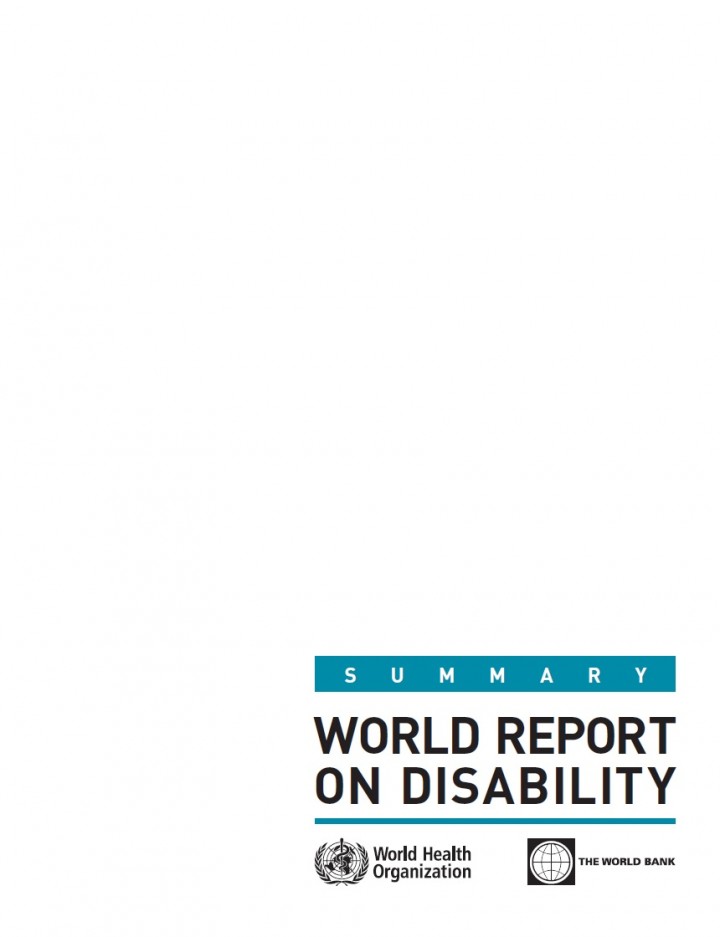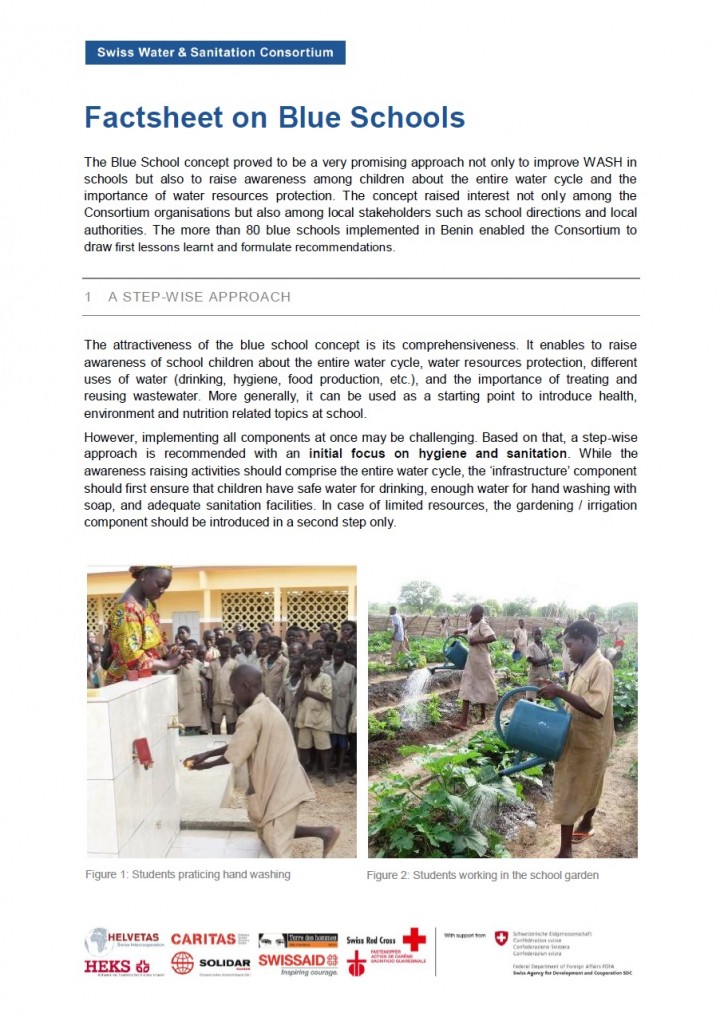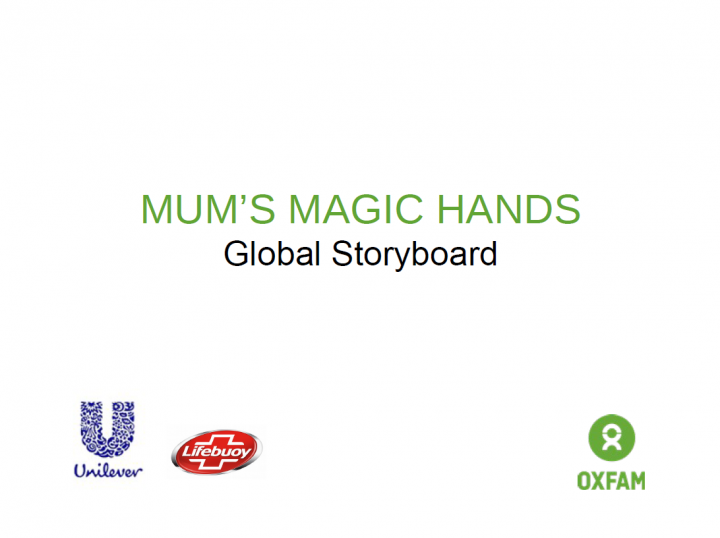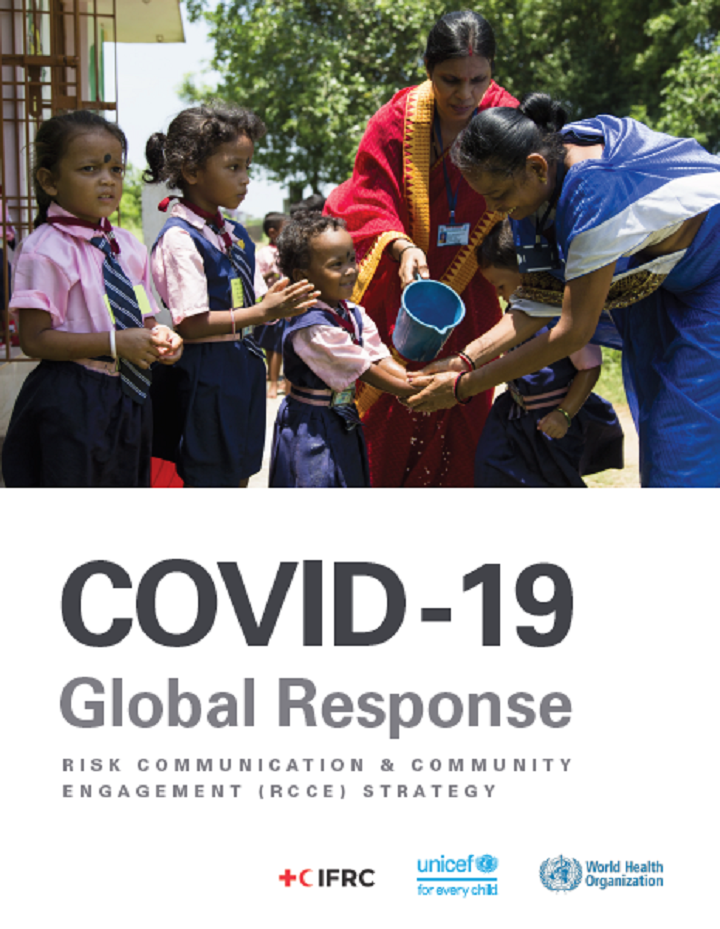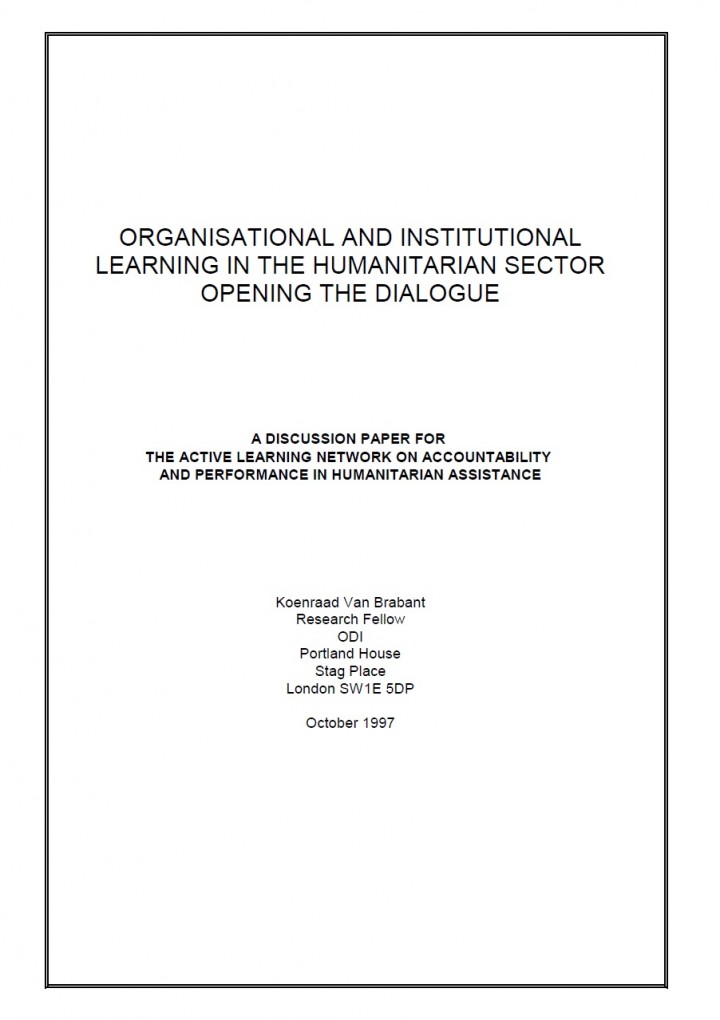Searching for information on Sanitation Workers?
The Sanitation Workers Knowledge + Learning Hub is the best source for all current news, trends, articles and updates on sanitation workers rights around the world.
According to the World Health Organization/United Nations International Children’s Fund Joint Monitoring Program, 494 million people practice open defecation globally. After achieving open defecation-free (ODF) status through efforts such as Community-Led Total Sanitation (CLTS), communities (particularly vulnerable households) may revert to open defecation, especially when toilet collapse is …
Two and a half years after the first ecological sanitation conference in Bonn, the Deutsche Gesellschaft für Technische Zusammenarbeit (GTZ) GmbH and the International Water Association (IWA) jointly organised and held the 2nd International Symposium on ecological sanitation “ecosan – closing the loop” in April 2003 in Lübeck.
The USAID Water, Sanitation, and Hygiene Partnerships and Learning for Sustainability (WASHPaLS) project conducted a review of the scientific and grey literature, complemented by dozens of key informant interviews with researchers and field implementers, to synthesize the latest understanding of key pathways of fecal microbe ingestion by infants and young children (IYC) and their links to …
Kurigram is a fast-growing city, which is 339 km away from the Dhaka. It is beside the Dharla River and is well connected with road and railways. It is one of the oldest towns in the sub-continent and was declared Municipality in 1972. Kurigram is one of the 53 district level municipalities in the country.
According to the population census in 2011 by the Bangladesh Bureau of Statistics …
Sanitation workers play a vital role in maintaining cleanliness and safety within the sanitation chain, a crucial aspect of achieving Sustainable Development Goal (SDG) 6. However, they often face poor working conditions, social and economic marginalization, and significant health risks, including the threat of infection and injury, sometimes leading to fatalities, compromising their dignity and …
The Arborloo is a simple ecological toilet that was designed to recycle human waste within a shallow pit where the contents are transformed from a vile and disease forming material into a product which trees can tolerate, thrive and grow in without the user having to be in contact with the pit material. Many articles have been written by the writer about the Arborloo and other ecological toilets …
The integration of gender equality and inclusion within water, sanitation and hygiene (WASH) service provision is critical to ensuring sustained and equitable access. Efforts to integrate gender considerations in the WASH sector have evolved from an instrumental approach towards a more transformational approach that supports dual outcomes in WASH and in gender equality more broadly. This report …
This study aims to evaluate the effect of factors influencing the performance of a small-scale operating wastewater treatment plant (WWTP) integrating anaerobic baffled reactor (ABR) and biofilters with temperature fluctuations in the psychrophilic–mesophilic range. Over nine months of monitoring, the overall removal efficiencies for total chemical oxygen demand (TCOD), soluble chemical oxygen …
The right to water and sanitation entitles everyone to have access to sufficient, safe, acceptable, physically accessible, and affordable water for personal and domestic use. In 2010, the UN General Assembly and the Human Rights Council recognized clean drinking water and safe sanitation to be human rights, essential to the full enjoyment of life and all other human rights. Additionally, …
The Royal Government of Bhutan and in particular, the Ministry of Health (MoH) has been concerned with the high prevalence of sanitation and hygiene-related diseases. This was largely due to low coverage of hygienic pour-flush toilets; high prevalence of inferior quality pit toilets (without slab/cover) which were unsanitary and unhygienic; and households without toilets. The Bhutan Multiple …
Bangladesh is the eighth-most populous country in the world, with a population exceeding 166 million people in an area of 147,600 square kilometres making it one of the most densely populated countries in the world.
About a million Rohingyas have fled due to the ethnic cleansing in Myanmar and sought refuge in Bangladesh. The refugees are in temporary settlements in hilly areas of Cox’s …
Afghanistan is affected by manmade and natural disasters, which have caused a significant displacement of people. People often move from their place of origin to cities and are settled in areas where access to safe drinking water is limited. In 2020, only 47.5 per cent of the population had access to basic drinking water services and 38.1 per cent had basic hygiene services1. As a result, …
This report is the final output of the ‘Value for Money Study in Global Sanitation Fund Programmes’, hereafter ‘the VFM-GSF project’, funded by the Water and Sanitation Supply Collaborative Council (WSSCC)/Global Sanitation Fund (GSF).
The stated objectives of the project were threefold:
1. To assess GSF-funded sanitation and hygiene implementation programmes to gauge current levels …
Sanitation and waste workers in Bangladesh are generally marginalised, living in congested colonies, slums or informal settlements with limited access to basic services. Lower caste and religious minorities are more likely to engage in collecting garbage and cleaning toilets, emptying pits and septic tanks, often face social exclusion and rampant discrimination. These workers face a greater risk …
The Tamil Nadu Urban Sanitation Support Programme (TNUSSP) has been supporting the Government of Tamil Nadu (GoTN) in achieving total sanitation in the state, and are demonstrating innovations in two model urban locations – Tiruchirappali Corporation, and Periyanaicken-palayam (PNP) and Narasimhanaicken-palayam (NNP) town panchayats. The Bill and Melinda Gates Foundation (BMGF) is supporting …
Business and development organisations have a common interest in shaping social, environmental and economic conditions that promote development in developing countries and emerging economies. For this, the German Federal Ministry for Economic Cooperation and Development (BMZ) established the develoPPP.de programme in collaboration with Hoermann KG that supports cooperation between the private …
Several work activities bring workers into contact with sewage and sewage products.
Each year, some workers will suffer from at least one episode of work-related illness.
The majority of illnesses are relatively mild cases of gastroenteritis, but potentially fatal diseases, such as leptospirosis (Weil’s disease) and hepatitis, are also reported to HSE.
However, there could well be …
In rural Viet Nam, 20 per cent of the population still do not have access to basic drinking water services, leading to leaving children vulnerable to diarrhoea, dysentery, typhoid and other water-borne diseases. Following Cambodia’s example, Viet Nam has invested in the production and distribution of ceramic filters to address the issue of water access, particularly in the rural areas. Led by …
On 7 April 2020, Tropical Cyclone (TC) Harold caused major infrastructure damage to 43% (128/298) of
schools and 47% (164/349) of ECCE (early childhood care and education) centres in Vanuatu’s Sanma,
Malampa and Penama provinces1. Pentecost, in Penama province, was among the hardest hit with all of
the 23 schools in central and southern zones reported as majorly damaged. Along with efforts …
The first ever World report on disability, produced jointly by WHO and the World Bank, suggests that more than a billion people in the world today experience disability.
People with disabilities have generally poorer health, lower education achievements, fewer economic opportunities and higher rates of poverty than people without disabilities. This is largely due to the lack of services …
Oxfam and Unilever’s Chief Sustainability Office carried out extensive research on handwashing practice in emergency contexts. We found nurture to be one of the most powerful motivators driving handwashing with soap among mothers. Even during a crisis, mothers continue to nurture their children to ensure they go onward in life and succeed in bringing fruition to their efforts and fulfillment to …
A clear and integrated Risk Communication and Community Engagement (RCCE) strategy and response is vital for community uptake of essential public health and biomedical interventions to prevent and control the spread of disease. This strategy ensures dialogue and participation of all stakeholders and affected communities during preparedness, readiness and response.
The COVID-19 outbreak and …

